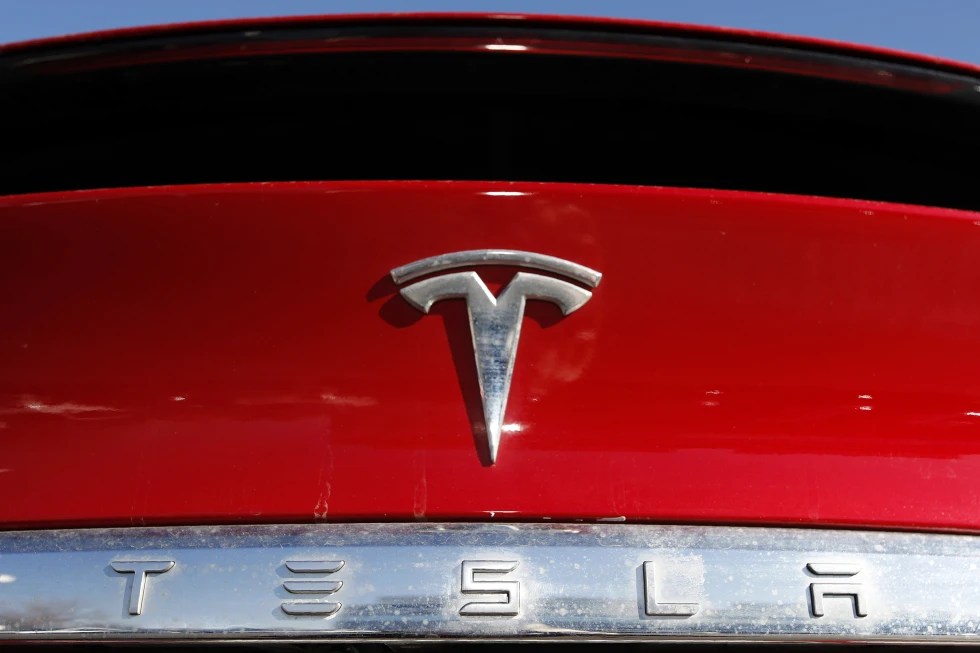Right after James Porter received his new Tesla compact SUV — bought in large part for its advertised 303-mile range — he charged it up and hit the road to visit family. Less than 100 miles later, he arrived with a charge of only 40%, according to a lawsuit accusing the electric-vehicle maker of inflating driving-range estimates and dodging owners’ complaints. Porter of Petaluma paid $72,000 for his Model Y after test driving one in Vallejo, and received it in June 2022, according to the lawsuit.
At no time during the testing or purchasing process was he told that “the advertised range did not account for normal driving conditions or that it was exaggerated,” the lawsuit claims. During his family trip, “his vehicle lost approximately 182 miles of range — despite only driving 92 miles,” the lawsuit contends. Porter and two southern California Tesla Model 3 sedan owners who are co-plaintiffs in the lawsuit, Bryan Perez and Dro Estepanian, are seeking class-action status to bring into the lawsuit everyone in California who has bought a new Tesla Model 3, Y, S or X.
They also are seeking unspecified damages and a court order to stop Tesla from advertising allegedly false estimated ranges. The lawsuit specifically cites a last month that said that the decision to present drivers with exaggerated range estimates came directly from Tesla CEO Elon Musk. Tesla, which runs a major factory in Fremont, did not respond to requests for comment about the lawsuit.
Tesla not only misrepresented the distance its cars could drive on a charge, it created a special department to divert complaining owners away from service appointments that would cost Tesla money, Porter, Perez and Estepanian contend. “Tesla advertised mileage projections of 350 to 400 miles – or more – on a fully charged battery, and programmed its software to display mileage readings on its vehicles’ dashboard range meters that reflected the advertised projections,” the lawsuit filed in U. S.
District Court in Oakland claims. But once drivers left the garage and took to the asphalt, “the projected mileage range would diverge from the projections, and drop, often significantly, resulting in an actual mileage range which was much less than Tesla’s dashboard projections,” the lawsuit filed last week alleges. varies somewhat with driving conditions — miles driven in town, where regenerative braking bolsters the battery, eat less charge than highway trips.
And according to global vehicle-tracking firm Geotab, an electric vehicle’s range, like that of a gas car, also depends on terrain, weight of passengers, speed, driver behavior and outdoor temperature. But Porter, Perez and Estapanian are alleging range issues that go far beyond those normal expectations. San Diego Model Y owner Alejandro Corona makes similar claims in a separate lawsuit filed the next day in U.
S. District Court in San Jose. Corona is seeking unspecified “relief” and an order “requiring Tesla to accurately display the mileage range of its vehicles.
” After his trip, Porter called Tesla about his concerns, and the company made an appointment to check out his car, but then a Tesla representative canceled the appointment, the lawsuit alleges. When Porter complained that his range was coming up short, the representative said the advertised range was based on not using the radio, air conditioning, or other electronics, and that the promoted range did not account for weather, headwinds, temperature, traffic or other driving conditions, the lawsuit claims. “The Tesla representative explained that it was normal and expected that the Tesla vehicle’s range would drop below the advertised range with normal driving conditions and use of other vehicle features,” the lawsuit alleges.
“The Tesla representative claimed that there was nothing wrong (and) canceled the service appointment to review the vehicle and confirm whether the vehicle or battery was, in fact, malfunctioning. ” In fact, that communication was part of an orchestrated approach from a company well aware of the problem, the lawsuit claims. Tesla “created a special ‘team’ that was tasked specifically with handling these complaints … to divert customers away from service appointments, in an effort to save Tesla time and money in handling service appointments,” it says.
Members of this purported team would allegedly “simply cancel any service appointment that was nominally related to concerns over a vehicle’s range. ” The team would call the customer to explain that the advertised range was a “prediction,” the lawsuit claims. “The team was trained to explain to customers that the electric vehicle’s batteries naturally degrade over time — and, thus, the vehicle’s range will be reduced.
” Tesla, headquartered in Palo Alto until moving to Texas in late 2021, also updated its mobile app so that any customer who raised a concern about range would be blocked from scheduling a service appointment about it, the lawsuit alleges. “The app would only allow them to ask that a Tesla representative contact them regarding their concern,” the lawsuit claims. “All such complaints and concerns were routed directly to the Diversion Team.
” Instead of allowing owners a service appointment, the team would use their cars’ wireless connectivity to run diagnostic checks remotely, the lawsuit alleges. If a different issue was identified by that check, the lawsuit claims, “the Diversion Team was instructed not to inform the customer and instead was required to simply close the customer’s case. ”.
From: mercurynews
URL: https://www.mercurynews.com/2023/08/08/lawsuit-tesla-faked-driving-range-for-cars-created-special-unit-to-squelch-complaints/



